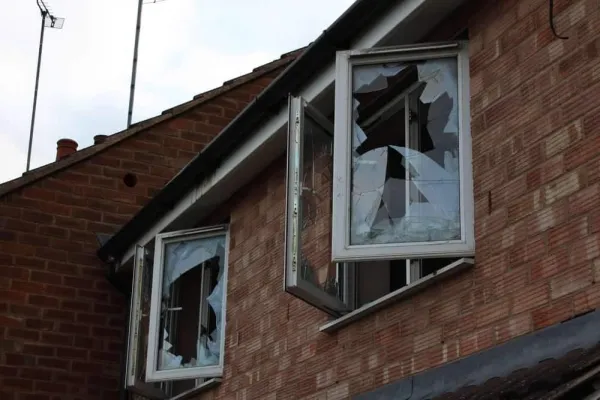Everyone wants to get a great deal on the property market.
When selling such a valuable asset, you must get every penny possible.
However, valuing a house can be confusing.
But with the right information, you can be well-informed about it.
What influences house valuation?
Location
This is arguably the most significant factor.
You can have two identical houses, but your selling price will vastly differ if they’re in other parts of the country.
In Scotland, the average house price is £230,496.
In Wales, it is £234,436. In Northern Ireland, it is around £183,000.
Meanwhile, in England, the average is £296,699. But of course, each region has its own unique prices.
Location is also significant in relation to streets, neighbourhoods, and even house position.
Being close to local amenities works in your favour, for example. Whereas a high crime rate does not.
Market conditions
External factors make a big difference, too.
In a buyer’s market, your selling price will drop. But in a seller’s market, it goes up. Interest rates can influence this.
The time of year also has an impact. The market tends to be busier and more competitive in Spring and Autumn.
It goes quiet during major holidays, such as Summer and Christmas.
Property condition
You’ve probably heard of the term ‘staging’ before. This is when you make your house look as attractive as possible.
And this isn’t done for fun: it’s done because it leads to a higher selling price.
Buyers can move in immediately, without any work. This can add value to your house – or at least perceived value to it. It might give buyers the final nudge towards making an offer.
However, if significant changes are needed, it will put people off. The offer they make will consider the time and money required to make the repairs.
Square footage and features
Property size is an important detail.
If your house is considered small, people are less likely to pay a lot for it – unless it’s in a very exclusive location.
More square footage generally translates into a higher price in most cases.
The features of the house are also important. The number of bedrooms and bathrooms is crucial.
And older people often prefer a bathroom downstairs, if possible.
Ongoing problems
It’s not just about what’s ‘right’ with your property.
It’s also about what’s not right. Structural problems are the most serious. However, faulty appliances and aesthetic concerns can also disrupt sales.
They often appear in the house survey even if you hide these details.
It’s best to be honest up-front to avoid a dip in the selling price that is too drastic.
How can I get my house accurately valued?
There are three main ways to get your house valued.
Estate agents offer this service for free. You can contact them to visit your house and value it. They’ll understand the local market, too.
Independent property valuers cost money but arguably give a better service. They aren’t trying to convince you to sell with them. So, they can be objective and give it to you straight.
Free online valuation tools also exist, such as Rightmove and Zoopla. However, be cautious: these give very general estimations.
Whichever route you go down, you should get several perspectives. This makes it easier to calculate an average. And an independent expert’s opinion is more likely to be trustworthy.
When is the best time to sell my house?
The busiest times are in Spring and Autumn. This is when most buyers and sellers are on the market.
You may get higher offers during this time, as there’s more competition between buyers.
The quietest times are Christmas and the Summer holidays. Sellers are keen to avoid these periods. Those who try to sell tend to drop their asking price at this point.
Ways to improve my house selling price
Declutter and clean
You need to show your house in the best possible condition.
Decluttering refers to tidying and cleaning. Whether you do this or pay a cleaner is up to you.
Fix all aesthetic problems
A fresh lick of paint or fixing cracks in the driveway makes a big difference.
If you have an ugly car, park it on the next street. Lots of small changes can do wonders for your curb appeal.
Get your documents sorted
This will make buyers keen to work with you. It also shows transparency about your EPC, planning permission, electrical safety, etc.
It’s always best to address these subjects up-front.
Don’t let your buyer’s surveyor be the one who discovers it, as they’ll drop their bid by comparatively more.
Consider home improvements
Some of these take several months, so you should prepare for this long before you try to sell.
Extensions add the most value. But you can keep costs down with a loft conversion or simply getting planning permission. New appliances are a great idea, too.
Choose the right photos and selling price
Marketing is the most critical art form when selling your house. Find an estate agent who does an excellent job in these areas.
The right selling price and timing encourage a bidding war. And photos will draw viewings from all over!
How long to wait before reducing house price
As with other factors in selling a home, the answer to when you reduce your asking price depends on several factors.
The first question you should consider is whether or not you should reduce your house price. In other words, consider all the reasons your home isn’t selling.
If you do establish that pricing is the reason, then you should reduce it immediately. However, this is assuming your house was overpriced in the first place.
So, if pricing is not the reason your house isn’t selling, and your house is overpriced, then you should only reduce the price to sell faster after 99 days.
















